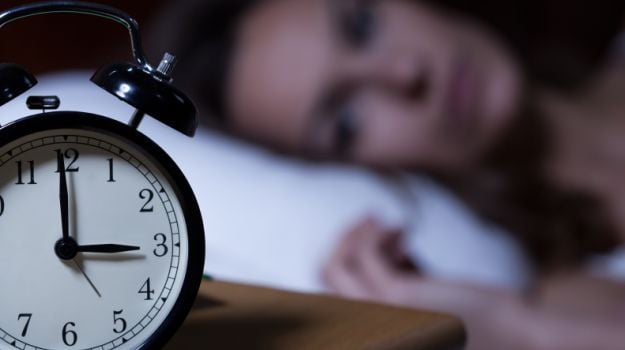We have heard it several times that six to eight hours of sleep is essential for the body’s proper functioning. This is the time when the body relaxes and undergoes repair, so that you can be all up and about the next day. But the kind of lifestyles we lead today, it is easier said than done. Stress is one of the biggest factors which hamper’s a good night’s sleep, with thoughts running through your mind non-stop. In the case of school and college children too, sleep disorders are common.A new study done by the University of Alabama at Birmingham in the US states that adolescents who experience sleep problems and longer sleep duration are more reactive to stress, which could contribute to academic, behavioural and health issues."This particular population is more likely to experience insufficient sleep, and their functioning is more negatively affected by lower sleep quality," said one of the researchers Sylvie Mrug, psychology professor at the university. The researchers examined two dimensions of sleep - sleep duration and sleep problems from the perspectives of adolescents and their parents, as well as the levels of the stress hormone cortisol before and after social stress.
Eighty-four adolescents with an average age of approximately 13 took part in the study. In stress tests, the researchers found that cortisol levels that indicate increased stress response are higher in adolescents with sleep problems."The result of higher cortisol levels in adolescents experiencing sleep problems was exactly what we expected to see," Mrug said. "We were, however, surprised that longer sleep duration predicted a stronger cortisol response, because previous studies linked shorter sleep duration with higher cortisol levels,” Mrug noted.Generally, less sleep is related to poor outcomes, not the other way around. In this case, this unexpected result could be explained by considering that longer sleep duration does not necessarily reflect higher-quality sleep, but instead may serve as another indicator of sleep problems, at least among urban adolescents," Mrug explained."Overall, the results of our study confirm what we originally hypothesised -- that sleep problems induce greater response to stress in adolescents," Mrug said. The study was published online in the journal Physiology and Behaviour.
Inputs from IANS.
Eighty-four adolescents with an average age of approximately 13 took part in the study. In stress tests, the researchers found that cortisol levels that indicate increased stress response are higher in adolescents with sleep problems."The result of higher cortisol levels in adolescents experiencing sleep problems was exactly what we expected to see," Mrug said. "We were, however, surprised that longer sleep duration predicted a stronger cortisol response, because previous studies linked shorter sleep duration with higher cortisol levels,” Mrug noted.Generally, less sleep is related to poor outcomes, not the other way around. In this case, this unexpected result could be explained by considering that longer sleep duration does not necessarily reflect higher-quality sleep, but instead may serve as another indicator of sleep problems, at least among urban adolescents," Mrug explained."Overall, the results of our study confirm what we originally hypothesised -- that sleep problems induce greater response to stress in adolescents," Mrug said. The study was published online in the journal Physiology and Behaviour.
Inputs from IANS.
Advertisement












